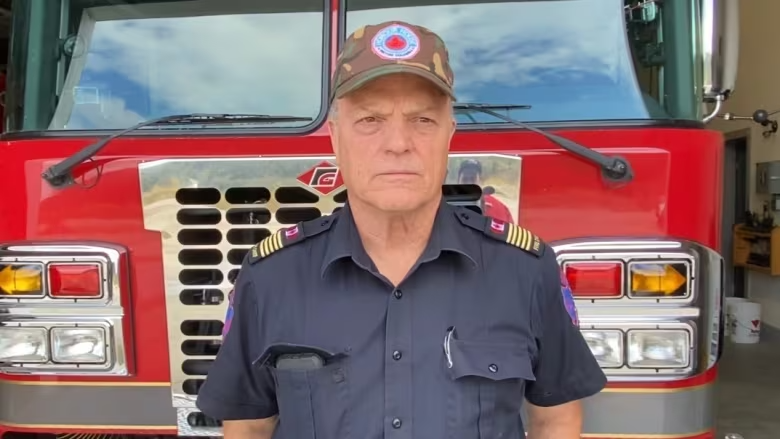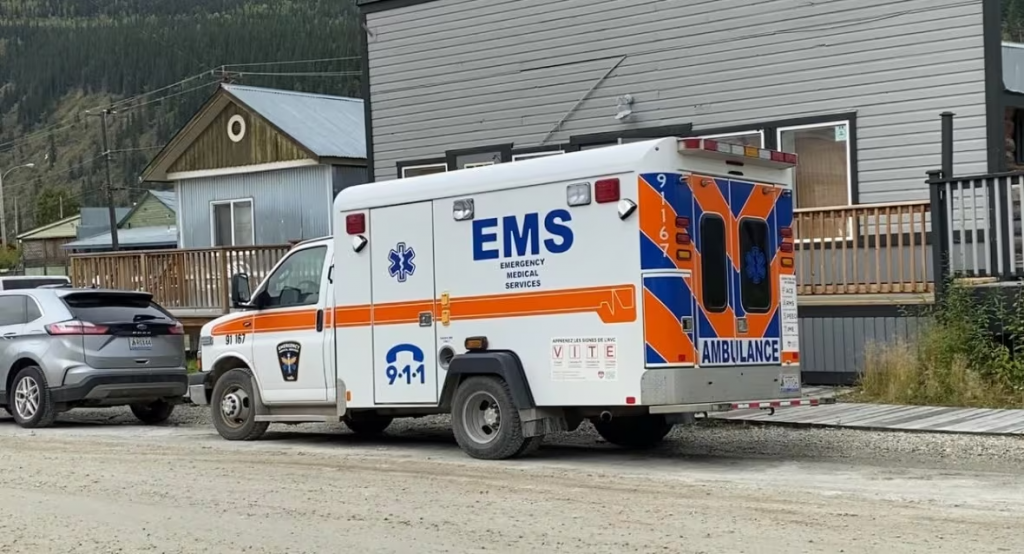Firefighters shouldn’t have to fill gaps in ambulance service: Dawson City fire chief

‘Our guys signed up as firefighters not paramedics,’ said fire chief Mike Massery
The fire chief in Dawson City, Yukon, say the territorial government needs to step up and address the current state of emergency medical services (EMS) in his community.
Mike Massery told CBC News that with local ambulance service often unavailable after six p.m. and on weekends, the fire department and RCMP sometimes pick up the slack and get dispatched to calls where an ambulance is actually needed. He said that’s a liability for his department.
“EMS, you know, is on-duty, off-duty,” he said. “We the fire service never know whether the ambulance is on-duty or off-duty, and neither do our citizens. EMS has the equipment. We don’t. They have the vehicles to transport. We don’t,” Massery said.
Ressources
Currently, the ambulance in Dawson runs on a Monday to Friday daytime schedule. If a medical emergency occurs in the evening or on the weekend, the public is left with a few options. They can find their own way to the local hospital, they can wait until an on-call paramedic is dispatched — if there are actually paramedics available — or they can wait for paramedics to be flown in from Whitehorse.
If 911 is called for immediate service, either the local department or RCMP will respond.
Massery said his department is often called for lift assists, where a person needs to be moved or assisted with their mobility. Massery explained to CBC News that calls that require a lift assist aren’t always communicated that way by 911 dispatch. It could be described to the fire department as an “extrication.”
“For the fire service everywhere an ‘extrication’ means that we’re usually going to a motor vehicle accident,” he said. “Some kind of wreck where we’re going to be using our extrication equipment. Our jaws. Our lifters to get somebody out of a place that they’re locked in… but when they phone in and ask for an extrication and it’s to help a paramedic carry a person, that’s unacceptable.”
Massery said that during an extrication call, up to 11 firefighters are sent to respond. They’re often equipped with a trailer full of equipment. He said if a real extrication call were to then come in, there would be very few firefighters, if any, to respond, and with no equipment.
Gerard Dinn, Yukon’s director of Emergency Medical Services, declined a request for an interview with CBC News.
‘Our guys signed up as firefighters, not paramedics’
Massery said Dinn did recently send him a draft memorandum of understanding about emergency services. Massery said he hasn’t had a good chance to read through it yet but there are some things he wants to see outlined before any signatures hit the paper, such as more trained EMS staff or a 24-hour ambulance service in Dawson.
He said the fire department is there to help citizens, but there are some things they can’t do.
“Our guys signed up as firefighters, not paramedics.”

Former Dawson resident Karen Larsen said she received a call that no daughter ever wants to get.
“My mom had a stroke,” she told CBC News.
Larsen who now lives in Nanaimo, B.C, said her mother’s neighbour in Dawson notified Larsen of what happened.
“While they were waiting with her I phoned the ambulance and mentioned my mom … needs an ambulance and I was told that there was no ambulance available,” she said. “They said the best they could do was try to scramble a team together in Whitehorse and fly a team up.”
Larsen said she told the 911 dispatcher that option was unacceptable.
“I was pretty darn upset,” she said. “So I had to scramble to call some old friends to have them go over to the house and stay with my mom and in turn called the RCMP and see if they could step up to the plate and get over there.”
Larsen is also a former ambulance attendant for the community.
She said she fully understands staff shortages and burnout but she said it’s the responsibility of the Yukon government to ensure emergency medical services are consistently available to all Yukoners, all of the time.
“There definitely needs to be somebody with a radio, 24/7,” she said. “People don’t get sick between certain times of the day, and incidents don’t happen between certain times of the day. Things happen all the time.”
Related stories from around the North:
Canada: Pilot project launched to improve emergency call service in Nunavik, Eye on the Arctic
Finland: Police response times up to an hour slower in Arctic Finland, Yle News
Sweden: Criminal gang activity moving into northern Sweden, Radio Sweden
United States: U.S. Justice Dept. awards $42 million in tribal grants to fight crime, help victims in rural Alaska, Alaska Public Media
Norway: Police in Arctic Norway say helicopter now needed for border surveillance, The Independent Barents Observer



